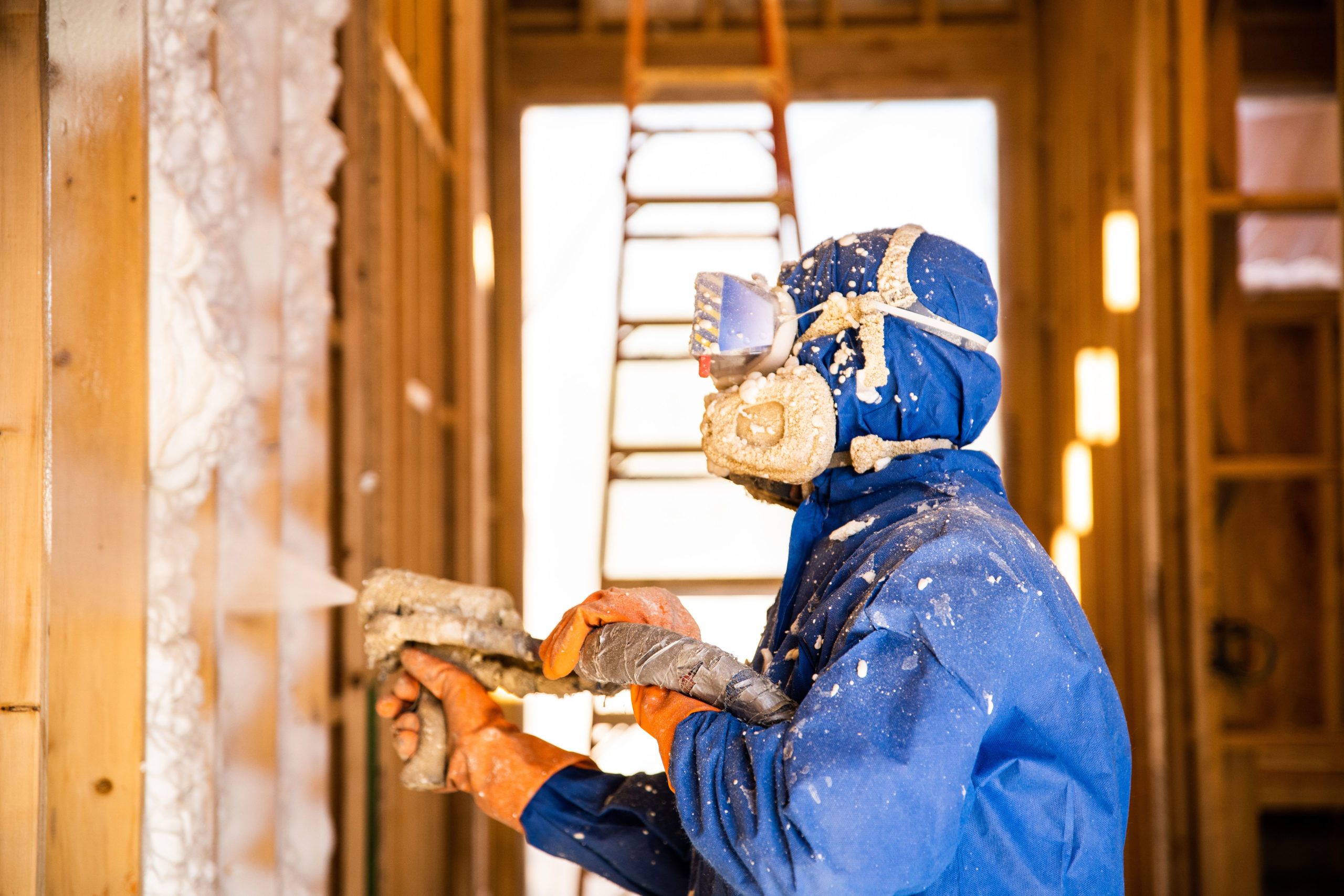Building contractors and homeowners alike prefer spray foam insulation to fiberglass insulation because of its ease of application, superior temperature insulation, strength, and sound-proof qualities, and its life longevity. When it comes to insulation, there really isn’t much of a competition between the two.
However, with so many other benefits, there is one property of spray foam insulation that comes into question: does spray foam add structural integrity to a building?
Spray foam hardens pretty significantly once applied to a surface, so it makes sense to assume that the structural strength of the building you apply it in will be improved. But, can this layer of foam really have that much of an influence on load strength and structural strength?
Whether you are a contractor looking to share an article with a customer, or you are a homeowner looking to seek clarification, this article will answer your spray foam load strength and structural integrity questions.
Understanding Structural Loads and Loading
To answer the common question concerning spray foam structural integrity, you need to first understand structural loads and the forces that act upon any given building or structure. Internal and external forces act upon any given structure. The external force is known as a structural load, or the load created upon the structure by the sum of its various components. An internal force is a stress that results from the load.
Another way to look at it is to go back to your high school physics class and recall your lessons in action and reaction. The load is the action; the stress is the reaction. For every action, there is an equal and opposite reaction.
If the structure is not strong enough to handle the resulting stress from the structural load it can result in damages to the structure, both minor and major. Homeowners might recognize this effect in action in the form of cracks in foundation or walls as homes “settle” under the structural load.

Structural Load and Spray Foam
Ok, so much for the physics lesson: what does all that have to do with spray foam structural strength? Understanding the influences on a structure will help you better understand the benefits spray foam vs fiberglass insulation.
The advantages that spray foam insulation has comes in two forms. First, when it is applied to the interior of walls or under the roof of your attic, it sticks directly to the building materials. Where fiberglass insulation acts as a simple buffer, spray foam’s direct contact with the building makes it, for all intents and purposes, part of the structure. This means that the structural load is also shouldered by the foam.
Spray foam also adds structural strength due to its second property advantage. Spray foam insulation expands as it comes into contact with the air and hardens as it dries, resulting in a transformation from liquid to a rigid state. Since the insulation sticks to the building’s surface and hardens, this newly added rigidity to the building increases the structural integrity of the area it is applied to.
So, the answer is yes: spray foam insulation does add structural integrity.
Comparing Open Cell vs Closed Cell SPF
There are two different types of spray foam that are commonly used: open cell spray foam and closed cell SPF. While both are good spray foam options, they possess different properties that may influence the amount of structural strength they add to a structure.
Let’s take a closer look at the two spray foam options. First, it is important to know that spray foam is made up of isocyanate and polyol resin cells. When mixed and exposed to the air, it is these cells that harden.
Open cell foam is a type of foam that is made up of cells that are not encapsulated. Deliberately left open so that air and moisture can enter, these cells do not harden as rigidly when exposed to open air. This makes open cell foam softer and more flexible.
Closed cell foam, as the name suggests, features cells that are completely closed off from air and moisture. The absence of air inside the cells increases the density of the cells, and therefore the foam itself. The nature of closed cell foam also causes it to become more rigid when it hardens. The combination of its density and rigidness helps create a surface that is much more stable than open cell foam when applied.
The high-density and superior rigidity of closed cell spray foam insulation adds extra reinforcement and stability to exterior walls or stud cavities where it is applied. This assists the resistance to compression from the structural load and the resulting stresses that it creates.
In fact, research conducted by the National Association of Home Builders (NAHB) has shown walls installed with closed cell spray foam have a racking strength up to 300% greater than walls without it.
With that in mind, it is easy to understand how open cell foam is not able to provide the same structural strength as closed cell foam. For superior spray foam structural integrity, go with closed cell foam.
Closed Cell Spray Foam Structural Strength Has No Match
The superior rigid foam of closed cell foam makes it the clear choice for adding structural strength and integrity to a structure in addition to its temperature insulation and sound-proofing properties. Both as a structural additive to the walls of an existing home or the insulation of choice for new construction projects, closed cell foam can provide the means to improve structural strength and will help prevent or reduce damages caused by structural loads.
For best-in-class closed cell foam, choose Accufoam® CC. Accufoam® CC is the leading medium-density spray foam, ideal for new construction and retrofit insulation of both residential and commercial buildings. It’s a superior barrier to air, moisture, and heat transfer. With excellent adhesion, you can be confident the insulation will remain in place, matching or exceeding spec.
To learn more about our spray foam products, call (205) 851-1863 or contact us online.


